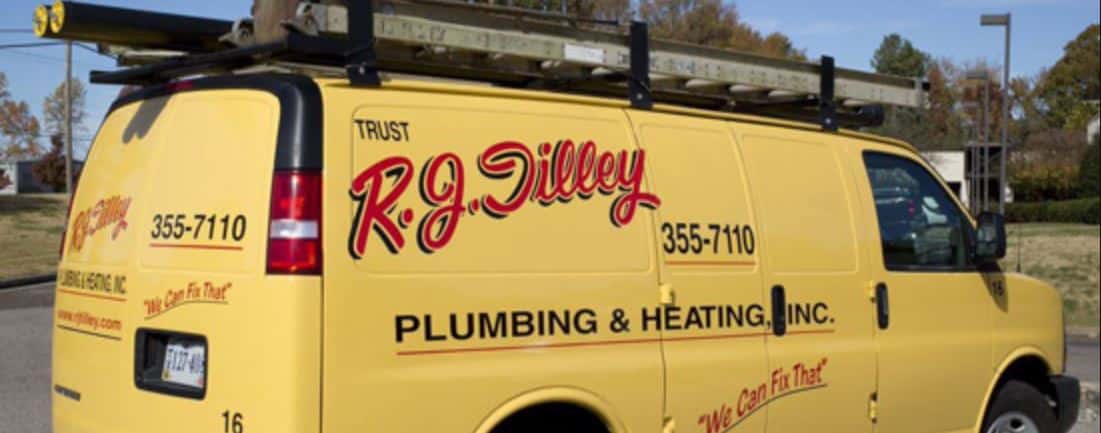
Water heaters aren’t too complex as far as household appliances go, but they can still wear out or break down over time. Fortunately, some issues are easy to fix, while others may require the services of a professional.
Most Common Water Heater Problems
Some of the most common water heater problems—along with potential fixes—include those listed below.
Water leaks
If your water heater is leaking, it may be the result of any number of things, including simple condensation. If something has gone wrong, it is likely one of the following:
- A leaking T&P (temperature and pressure) valve due to over-pressurization
- A leaking gasket or inlet valve
- Loose pipe connections
- Corrosion
Often, you might just need to adjust the thermostat on the unit or tighten up a pipe/valve. In other cases, parts may need to be replaced. If there is a leak due to corrosion, then the entire water heater may need to be replaced.
If a leak is left unattended, your water heater could continue deteriorating, particularly if it’s a result of corrosion. Additionally, it may cause water damage and mold growth in the surrounding area.
Not enough hot water
Another common issue is when there’s insufficient hot water coming from your water heater. At times, this may simply be due to having too small a tank to supply your home. In those cases, upgrading to a larger unit or switching to a tankless system would solve the issue.
If that’s not the case, then it could be one of the following:
- Water heater temperature is set too low
- Faulty thermostat
- Faulty element (electric)
- Loose wiring
The thermostat may need replacement. In the case of an electric system, the issue may be resolved by replacing the element.
In some situations, you may get no hot water at all. With a gas model, this may be due to a fault with the pilot light or thermocouple. In those cases, a bit of cleaning may be all that’s needed.
If you have an electric system, then the issue of no hot water may be due to a failed element or tripped breaker switch. Try the breaker switch first, and if that doesn’t solve the issue, call a technician at R.J. Tilley to replace the elements.
Low water pressure
Low hot water pressure usually results from plumbing more than from your water heater. Oftentimes, it occurs in older homes with 1/2 inch piping. Replacing this piping with 3/4 inch could fix the issue, but it’s an expensive and time-consuming undertaking.
Another common cause is calcium buildup in your sink aerators and showerheads. Cleaning those out could help improve your water pressure, though the impact will likely be minimal.
Rust-colored water
Rust in your hot water is a sign that the anode rod inside your water heater’s tank has corroded. It’s a simple fix to replace it, but if it’s left unattended too long, it could lead to corrosion in the tank’s walls as well, causing a leak. If that happens, the entire unit will need replacing.
If you have other debris in your hot water, it could be a sign of scale buildup on electric elements or elsewhere in your unit. In those cases, flushing and cleaning the unit could help resolve the issue.
Strange noises
A water heater that’s making strange noises—like popping, groaning, hissing, or knocking—is typically fine, though it could mean your system has scale or sediment buildup. It could also result from excess pressure inside your tank, putting a strain on the metal. While this issue is usually harmless, it’s still worth taking a look at just in case.
In gas units, the noise most commonly comes from expanding or contracting piping or dirt clogging up the areas where gas flows. Again, this is usually harmless, but it can still be worthwhile to get the unit checked and cleaned to be sure.
Foul odors
A smell of sulfur can occur when your home uses well water as a source and has bacteria buildup inside the water heater unit. That said, that should be something that’s handled by the anode rod inside your water tank.
If you have a foul smell coming from your water heater, you may have an issue with the anode rod. To test it out, try turning your unit’s thermostat to 140 degrees to kill off any bacteria. If the smell comes back, then your anode rod likely needs replacement.
Flushing the system could help as well, though it’s generally a temporary fix.
Preventive Measures for Water Heater Maintenance
Many of these water heater problems can be prevented with simple routine maintenance. Water heaters should be serviced roughly once per year, with most maintenance tasks being fairly simple to do.
Regular water heater checks should include:
- Testing the pressure relief valve and replacing if necessary
- Draining out sediments from the water tank
- Test the temperature of the water inside the unit
Additional maintenance work may include checking the anode rod, heating elements (electric), thermocouple (gas), and pilot light (gas). If anything seems off, replacing the part in question should help prevent major issues in the long run.
Some of these tasks for electric water heaters can be done by homeowners, but if you’re not comfortable performing these maintenance checks on your own, you’ll want to call a professional at R.J. Tilley to do them for you. The advantage of calling a pro is that if there is anything wrong with your water heater, they’ll be able to fix it promptly.
Gas water heaters should only be maintained by a professional. Call R.J. Tilley to do them for you.








